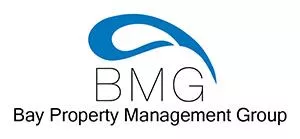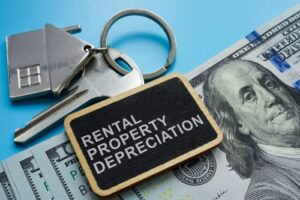How Does Rental Property Depreciation Work?
Real estate depreciation is an important tool for rental property investors. Rental property depreciation allows landlords to deduct the costs of buying and improving a property from their tax returns. Tax write-offs are one of the many benefits of owning rental properties. As such, read along as we go over rental property depreciation, how it works, and how to claim it at tax time.
Contents of This Article:
- What Is Rental Property Depreciation?
- When Does Rental Property Depreciation Start?
- How to Calculate Rental Property Depreciation
- Tips for Claiming Rental Property Depreciation
- Keep Your Records Straight With Property Management
What Is Rental Property Depreciation?
One of the most significant benefits for landlords is rental property depreciation. That said, landlords and property managers in Fairfax need to keep records and documents straight when it comes to financial matters.
Rental property depreciation allows investors to deduct the costs of buying, renovating, or improving a property. But first, it’s essential to know the differences between repair and maintenance tax write-offs and depreciation write-offs.
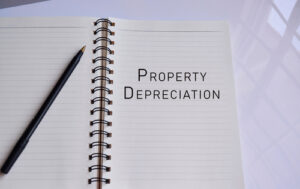
Maintenance and repairs are generally one-time expenses, while depreciation occurs over a period of time. To depreciate a rental property, you must prove that it has a useful and functional life over several years. For instance, you can depreciate a rental property if it meets the following requirements:
- You own the rental property
- The rental is a business or income-producing property
- The property has a useful life that will eventually become worn out
- Property and repairs will last for more than one year
It’s important to note that land is not depreciable since it doesn’t get used up. Additionally, you cannot depreciate the costs of landscaping, planting, or clearing land. As such, when you calculate depreciation, you must subtract these costs.
We’ll go over how to calculate depreciation later in this article. But first, let’s discuss when depreciation starts and the main differences between deductions and depreciation.
When Does Rental Property Depreciation Start?
Rental property depreciation starts when the property is listed for service. So, once you list the property as ready to rent, you can depreciate the costs of the building. However, depreciation only lasts a certain amount of time.
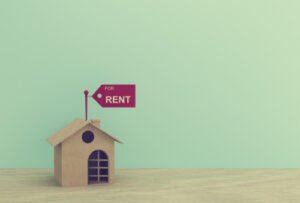
You can only depreciate a building until you’ve deducted the entire cost of the property. Additionally, depreciation stops when you sell the property or it’s no longer in service as an income-producing rental.
Investors can depreciate more than just the cost of the home. For instance, anything that enhances the property’s usefulness or value may also be depreciated. In addition, any renovations or improvements, such as property additions, new flooring, or HVAC replacements, can go toward depreciation.
First, however, it’s important to know the differences between maintenance deductions and depreciation.
Depreciation vs. Deductions
It’s important that investors know the difference between depreciation and tax deductions. Deductions are paid expenses that you can write off your taxes in the same year they were incurred. On the other hand, depreciation is amortized over several years to reduce an investor’s taxable income.
During tax time, rental owners must report income and expenses for each property on the right tax forms. Depreciation is an expense to include on your Schedule E to reduce your tax liability for the year. However, it’s different for each situation. Next, let’s go over how to calculate depreciation and tips for claiming it at tax time.
How to Calculate Rental Property Depreciation
Calculating depreciation doesn’t have to be difficult. However, the IRS has a few different ways of doing it. For instance, there is the straight-line method, the declining balance method, the sum-of-the-years’-digits method, and the units of production method.
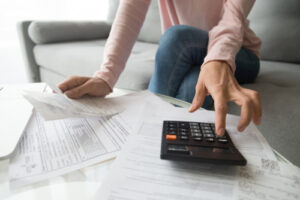
However, to keep things simple, we’re going to go over the most common way to calculate rental property depreciation using the straight-line method. The straight-line formula is fairly simple and easy to calculate once you have your numbers figured out.
For example, to determine your property’s annual depreciation cost, you must subtract the land value from the acquisition cost and divide it by the IRS depreciation period. This is because the acquisition cost pertains to all expenses related to purchasing a property, including the purchase price, taxes, and improvements.
Here’s a quick example to review:
If you purchased a property for $250,000 and the land value is $20,000, the building value is $230,000. To determine how much you can deduct for depreciation, you need to divide $230,000 by 27.5 years. The result comes out to just over $8,300. This is how much you can deduct for depreciation each year.
Tips for Claiming Rental Property Depreciation
Some first-time rental property owners may accidentally skip over depreciation as a tax deduction. However, it’s a valuable deduction that all rental owners should know about. Luckily, it’s not too complicated to claim depreciation–you just need to fill out IRS tax Form 4562.

To fill out tax Form 4562, you’ll need to collect the following information:
- The price of the rental property you’re depreciating
- A receipt for the property
- The date the property was listed for rent or the date you started using it for your business
- The total income you’re reporting for that year.
Once you have this information, you can start filling out Form 4562. That said, if you’re reporting depreciation for more than one rental property, you’ll have to fill out separate forms for each property.
Most rental property owners are not tax experts, and tax information must be accurate and precise. As such, we recommend connecting with a professional if you don’t understand your tax forms or you need help filling them out. Some industry professionals who can help with taxes may include a Certified Public Accountant (CPA), an Enrolled Agent (EA), or a tax attorney.
Keep Your Records Straight With Property Management
Keeping tax and property records straight is crucial to owning rental properties. As such, you should consider property management if you need help saving and recording rental property depreciation and other tax documents. A comprehensive property management team can help manage all aspects of your business, including maintenance, rent collection, financial statements, and more.
If you’re looking for a top-notch rental property management team, look no further than Bay Property Management Group. We offer comprehensive services in Baltimore, Philadelphia, Northern Virginia, and Washington, DC. Contact us today to learn more about our services.
